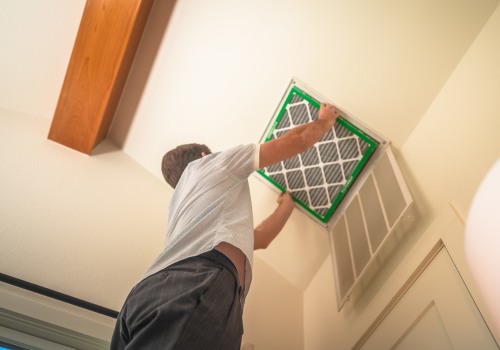For those with asthma, allergies, hay fever, or COPD, an air filter or room air purifier can be a great help in improving breathing. The American Asthma and Allergy Foundation (AAFA) recommends air purifiers with certified filters that are suitable for asthma and allergies, which can remove up to 98% of allergenic particles from the air. While individual strategies such as using only an air purifier may not improve anti-asthma measures, they can still be beneficial in reducing symptoms. The most effective type of air filter for asthma sufferers is the HEPA (high-efficiency particulate air) purifier.
HEPA filters must be able to capture at least 90% of all particles of 0.3 microns or more in diameter that enter it. This type of filter is also silent, making it ideal for bedrooms. Gas-phase air filters use activated carbon granules to remove odors (volatile organic compounds or VOCs) and non-particulate pollution, such as cooking gas, gases emitted by paint or building materials (such as formaldehyde), and perfume. Air purifiers are also effective at removing smoke from a room, as long as the air filter is large enough, the fan is on, and the air filter is in good working order.
However, they are not effective at removing gases such as radon or volatile organic compounds (VOCs). Ionizing air purifiers should be avoided by those with asthma, as they can produce ozone and irritate the respiratory system. The entry-level Blueair 203 allows 5 air changes per hour in rooms up to 22 square meters (assuming a normal ceiling height). To reduce symptoms of asthma and other respiratory conditions, it is important to choose an air purifier that is suitable for the size of the room in question and that uses a HEPA filter.







